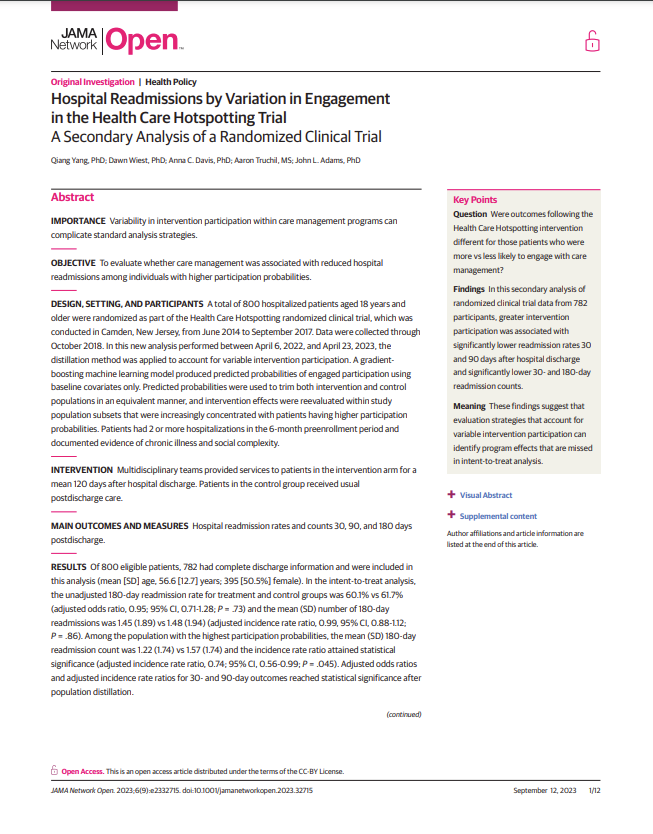Headline
Secondary analysis of Camden Coalition randomized controlled data found that care management participants who were the most likely to engage with the intervention had significantly lower readmission rates.
Context
Care management programs serving people with complex health needs may engage patients once or many times. A 2020 randomized controlled trial (RCT) reported that the Camden Core Model, a care management program for people with complex medical and social needs, had no significant impact on readmissions 180 days after hospital discharge. However, the original analysis measured the impact among all patients assigned to the intervention group, which included patients with varied levels of engagement. This article used a new framework designed to analyze data from RCTs with variable participation levels or relatively low enrollment, and assessed the impact of the care management intervention on the populations most likely to engage with the intervention.
Findings
The population that was the most likely to engage in the care management intervention was more likely to be female, of Hispanic ethnicity, and have specific chronic illnesses, and less likely to have been arrested, have a substance use disorder, or have housing instability. Among participants who were found to be the most likely to engage, the care management intervention led to a statistically significant reduction in hospital readmissions.
Takeaways
Care management programs serving a broad patient population may use these findings to consider prioritizing participants from populations who are most likely to engage and benefit from interventions. At the same time, programs can also identify strategies to better activate and support populations who are the least likely to be engaged in care and services. Care management programs may also apply lessons from Camden’s approach to cultivate partnerships with housing organizations and behavioral health providers to strengthen supports for participants with behavioral health and social needs.

